Master’s Degree As Common As Bachelor’s Degrees Once Were
Vox’s Libby Nelson takes now of how common the Master’s Degree has become:
It’s graduation time, an occasion for commencement speakers, academic regalia, and celebrating achievement. One achievement has become a lot more common over the past few decades: the master’s degree, the fastest-growing college credential in the US.
More than 16 million people in the US — about 8 percent of the population — now have a master’s, a 43 percent increase since 2002.
And as master’s degrees have grown, so has the debt that comes with them. The typical total debt for a borrower with an undergraduate and graduate degree is now more than $57,000, up from $40,200 in 2004. (This includes medical and law degrees.)
But the growth hasn’t been spread around evenly. The story of the past four decades isn’t just about how master’s degrees became as common now as bachelor’s degrees were in the 1960s. It’s about how the US has redefined which fields need or reward postgraduate study.
The best illustration of that can be found in the charts at the link showing the changes in which fields of study have been responsible for the most Masters Degrees over the past 40-odd years. For example, here’s the chart for 1971:
And here’s the chart from 2012:
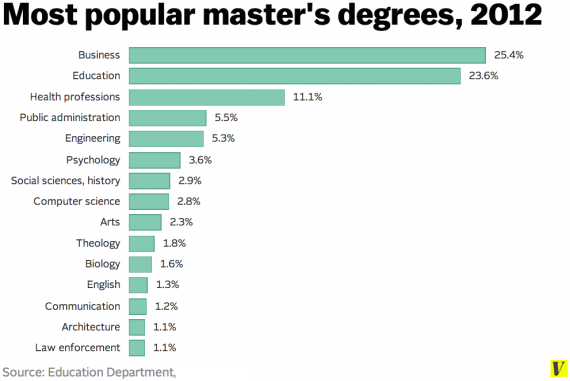 In addition to MBA’s overtaking Education, which is a trend that actually started in the 1980s, we also see Health Professions, which accounted for just over 2% of Master’s Degrees in 1971, now accounting for more than 10% of those degrees. I believe it’s safe to predict that this number will continue to grow, most likely at the expense of other fields of study. Indeed, it’s not hard to imagine a time when Health Professions overtakes Education on this list.
In addition to MBA’s overtaking Education, which is a trend that actually started in the 1980s, we also see Health Professions, which accounted for just over 2% of Master’s Degrees in 1971, now accounting for more than 10% of those degrees. I believe it’s safe to predict that this number will continue to grow, most likely at the expense of other fields of study. Indeed, it’s not hard to imagine a time when Health Professions overtakes Education on this list.
Of course, the unstated question here is whether we’re entering an era where the Bachelor’s Degree becomes what the Associates Degree is today, little more than a stepping stone to the “real” degree at the Masters level.
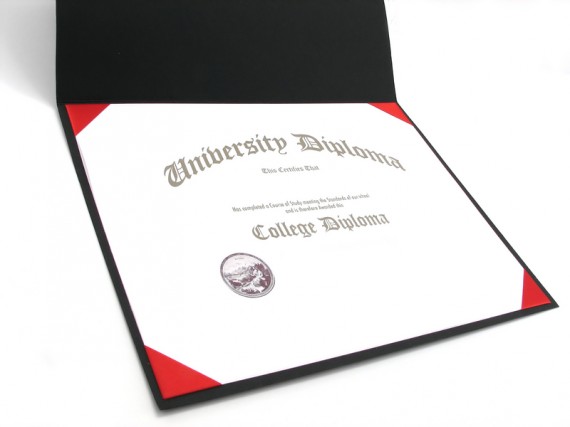
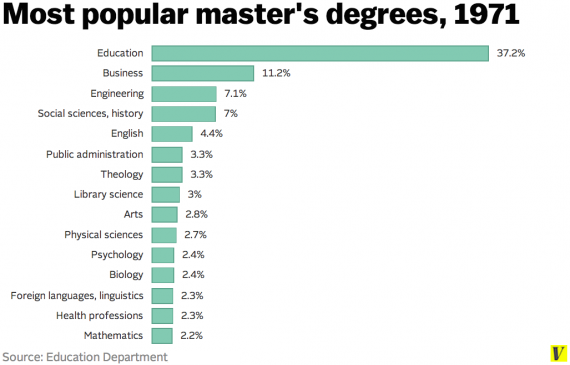



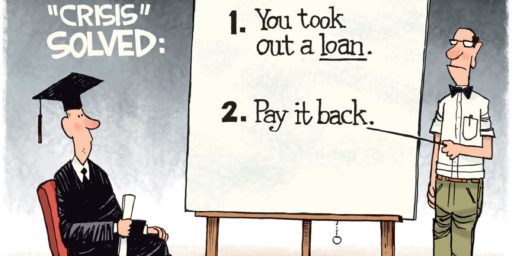

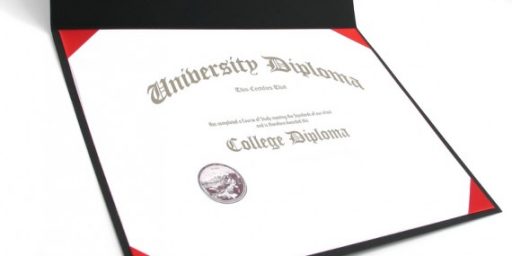
It might also be because many businesses now offer easy tuition reimbursements, for degrees in relevant fields. So a majority of these will be MBA’s and other business related degrees, since every business is after all a business. It is also a good way to start making money, still get an education and pay down previous loans. Although most of these degrees are non-thesis masters.
There must be good money in giving quasi-legitimate masters degrees. Most of the Universities around here run TV ads for relatively painless degrees . You don’t actually even have to go to the school in many cases, you can do it all online or perhaps attend a class for a couple of hours on Saturday.
Well, I just this past week completed the MBA program here at my State U. It’s my second masters degree, after having gotten one in Mgmt Info Systems while in the Air Force. I am only just now back up to making about as much as I did in the AF when I got out as a captain in 2007… On the bright side, as Bill Murray might say, since I used my GI Bill, I have no debts connected to it, so I got that going for me…
@Ron Beasley: Jobs in the public sector tend to give a pay wage step up for college courses, even if the courses have nothing to do with the job assignments and even if the school is not accredited. Around here this becomes public when a government employee runs for office and his/her opponent goes on the attack. The defense is a dispiriting “everybody does it,” which I don’t think is true, but so long at the loophole isn’t closed taxpayors are paying extra because someone took a Buffy the Vampire Slayer class. While we are firing teachers.
@PD Shaw:
You beat me to it. Most school systems have a grade/step system that gives pay increments for additional credit-hours and degrees. Credentialling also frequently requires one sort of continuing education or another.
When you’re in the education biz, you’re a consumer as well as a producer.
This is just degree creep. In healthcare, many jobs that used to require just an undergraduate degree now require advanced degrees. When everyone has an undergraduate degree, then an advanced degree is required. When everyone has a degree, then a specific degree that is closely related to the job is important. When every employer gets 100 applications for each position, then whoever has the most credentials has an edge.
@Ron Beasley: I did my Master’s online. I can tell you it was very, VERY far from “painless.” I have never been so busy. I did not have a life outside work and study for two years. The university made up for the lack of physically-in-the-classroom time by making the courses extremely discussion- and project-intense.
This is the way things are heading, anyway, even for classroom courses. See flipped classroom for example.
Great, now I have to get a PhD.
Also, an MBA is not a real degree.
@superdestroyer:
My mom just retired last year as a surgical RN, and she doesn’t even have a bachelor’s degree. When she started, nurses just went to nursing school.
@Stormy Dragon:
These days, most RN’s have an undergraduate degree, nursing managers have a MSN, nurse anesthetist have a masters, clinical research nurses have PhDs. I also began to see the BSN matched with a law degree from a third tier law school for nurses going into risk management.
@superdestroyer: This type of degree creep is not unusual and has been going on for a generation or more. When we let market supply of skills sets drive the employment sector and always shoot for oversupply, we set up these conditions.
Years ago, I had been working in the wholesale delivery business for 15 years. I had gone into teaching and was looking for a summer job. The local Target store had positions for night freight handlers–unloading trucks. I had 15 years of experience in shipping, lading and unlading, inventory control, freight expediting, and logistics. Even so, I couldn’t get the job because
they were only hiring people with BAs in merchandising. Why? Because they could.
reminds of that poor guy who got an mba from “strayer”, he was robbing banks to pay off the loan as he couldn’t get a good job with that thing. really sad actually.
Some guru told me years ago: “Get a degree in Philosophy, you will be unemployed, but you will understand why.”
He was a smart feller. Or was he a fart smeller? I don’t remember anymore.
@PD Shaw: As an electrical engineer I was encouraged to attend seminiars put on by professional organizations like the Surface Mount Technology Association. It was never suggested that a worthless MBA would enhance my career prospects.
This is the kind of thing that should be expected when job applications are pre-screened by computer programs.
@Dave Schuler:
It happens with people too Dave,
I was kind of gobsmacked when I was looking for a job in 2006. With 20 years of IT experience well over half the jobs required a bachelors in computer science (kind of new since in my previous searches they didn’t care what my undergrad degree was in). I asked an HR person how a computer science degree earned in the early 80’s makes me more fit for the job when the technology of the time is currently obsolete then my vendor certifications in the technologies that they wanted were all current. No answer …
Even funnier in the same time frame I was asked by a recruiter how many years of experience I has in Windows 2003 server I told her I had been working with it since beta so 4 years. She explained to me that she needed a candidate with 7 years experience. I told her to do the math (again this was in 2006). She simply reiterated that the client required 7 years experience. I told her it was my math that was wrong and I, in fact, had 10 years experience. That made her happy.
@Rick DeMent:
Because the question displays a complete ignorance of what a computer science degree encompasses. To paraphrase the famous quote, computer science is about programming the same way astronomy is about building telescopes.